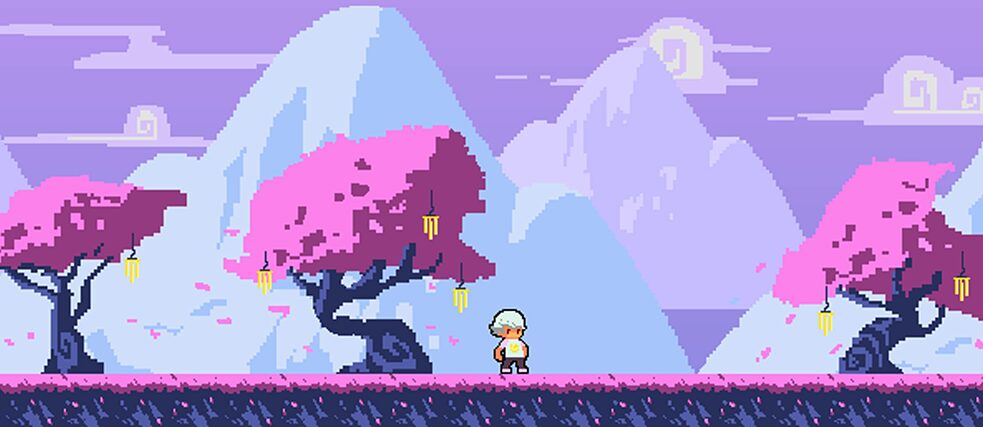Games in Media
An Insider’s View of the Goethe-Institut Kolkata Game Jam

How do videogames help generate media literacy? Here’s how developers from India & Germany came together to discuss the choices we make in everyday life.
By Souvik Mukherjee
There is hardly a better way to collaborate on game design than a jam. This was the thought behind getting game developers from India and the Cologne Games Lab together for an online session, Game Jam. Goethe-Institut / Max Mueller Bhavan Kolkata was the driving force in making this happen, along with Professor Sonia Fizek accompanied by academics of Cologne Game Lab, and senior developers from India, Satyajit Chakraborty and Yadu Rajiv. The topic Digiverse, with its multiplicity of meanings and pedagogical intent, explored the key advantages and risks of the plural universe of digital media. This event allowed for the synergies of the two gaming cultures to be represented on a single platform.
Goethe-Institut has been regularly focusing on the importance of new media in society on a global scale. Videogames have featured prominently in this project, such as the recent ‘Game Atlas’ in Hong Kong and the ‘Enter Africa’ project for developers in Sub-Saharan Africa.
In India, this initiative of Goethe-Institut Kolkata is one of the first such collaborations between European and Indian game developers. In the past, they have already played host to a large-scale travelling exhibition on Games and Politics, which helped raise awareness on videogames as political media. The exhibition addressed issues relating to immigration, LGBTQ rights, and democracy.
This event was focused on making video games within India in a unique collaboration with students from Germany. Having had an insider’s view, it was possible to observe the current changes in the Indian game development ecosystem and also the potential of ideas and creativity left untapped. In my book, Videogames in the Indian Subcontinent, I encapsulate the sheer size of India’s gaming and IT industry, and the paramount importance of Indie games. The Goethe-Institut ‘Game Jam’ provided a fresh perspective of recent developments in Indian game design.
Enter the Digiverse
The twelve games that were submitted each dealt with scenarios where media, primarily social media on digital platforms, plays an important part in shaping social behaviour. The outlook is by and large bleak, and points towards a dystopian future that involves a difficult negotiation between humanity and Artificial Intelligence (AI). Some common themes emerged in the videogames from both Germany and India that centred around fake news, safe browsing practices, digital fraud, and digital media exercising control over human life.
The influence of recent debates around ChatGPT, AI image creators and deep fakes was quite perceptible. The two games that were awarded prizes, The Ministry and ECorp, highlighted the struggle of media-management in an extremely connected world as well as how the demands of media govern the quotidian lives of consumers in ways that are dark, limiting and grim.
Among other notable mentions, Ruin is a platformer where the mechanics change with the changing of the settings. The game’s rigorous challenges can be overcome by altering the resolution or changing the volume! The developers connected this to the theme by seeing their game as a ‘meta-narrative that satirises the influence of UI in contemporary society’.
Blame, another game on the disastrous effects of media moves the player across perspectives some of which are those of the oppressed and marginal. What was most impressive about all the games was the effort that the jammers put in and the creativity that emerged in the space of just two days. Overall, compared to this author’s earlier experiences of judging game design competitions in India, the quality of design, graphics and innovation showed a polish that seems to indicate high standards of game development among Indian developers, something that recent videogame releases such as Raji, Missing and Forgotten Fields show.
Crossing over
The advantages of having an online Game Jam were manifold. In addition to the exchange of ideas with devs from Germany, it was possible to make the jam more representative. Developers from across India were able to participate. This helped address fundamental issues related to access and was an opportunity to showcase work from underrepresented areas of the country.
The jam was also open to print-and-paper games, however this area lacked Indian participants. All the board games submitted were from the Cologne Game Lab. Given the fact that no computer programming skills are needed to make print-and-paper games, this could be a promising area for a wider group of game developers and enthusiasts, and perhaps more events to promote these would be helpful.
Game world vs real world
Recent media developments have been equal parts amazing and ominous. As Mark Coeckelbergh remarks in his recent book, The Political Philosophy of AI, that Spotify claims to know him better than he knows himself when it recommends music. These systems nudge, and while they do not restrict our choice of books or music, they influence buying, reading, and listening behaviour in the direction suggested by the algorithm.
A new form of media literacy is required to address and engage with the affordances of media today. This also involves appreciating the interactivity and multiplicity of the mediaverse. Videogames as new media in themselves function as important choice-making systems that can both simulate and critique the workings of digital media. They can be a useful means to bridge the global North-South gap, connecting game developers across a large country like India, as well as with the rest of the world.
The use of videogames to comment on such current and socially relevant topics showcase the potential of games as a medium for sociopolitical commentary. The Game Jam was enriching, particularly in terms of exploring how collaborative game design projects can lead the development of informed, critical and creative videogames. Ones that tackle social issues, and pave the way forward for new developers.